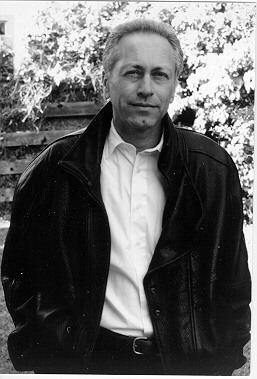 I'd initially planned to post one response to Feenberg's book, but when I got into it, I realized I'd never be able to synthesize all his arguments or all my questions/misunderstandings regarding his work in one concise response. So, I'll do this in stages instead and will have a summation post when I finish the book that will be more of my response to the text rather than a summation of the entire book. Hope this is okay.
I'd initially planned to post one response to Feenberg's book, but when I got into it, I realized I'd never be able to synthesize all his arguments or all my questions/misunderstandings regarding his work in one concise response. So, I'll do this in stages instead and will have a summation post when I finish the book that will be more of my response to the text rather than a summation of the entire book. Hope this is okay.I. Primary Question
What is our relationship to technology? Is technology, as Heidegger and others claim, an autonomous force existing outside the influence of humans? Or is it a social and political construct that is completely (?) conceived, developed, and manipulated by the culture in which it is created?
II. Project of these chapter's/overall aim
The Preface and first chapter of Andrew Feenberg's Questioning Technology seem to be setting up a tension between two opposing viewpoints of technology--one that views technology as autonomous, (as in Heidegger and Habermas's conception of it) existing outside the realm and influence of human control, and another that views technology as socially mitigated. Feenberg positions himself early on within the camp of those viewing technology as something bound up in the social, arguing that we must conceive of technology as a social and political element in order to be able to control it rather than be controlled by it (and those who have created it).
Feenberg argues that "insofar as we continue to see the technical and the social as separate domains, important aspects of these dimensions of our existence will remain beyond our reach as a democratic society. The fate of democracy is therefore bound up with our understanding of technology. The purpose of this book is to think that vital connection" (vii). Feenberg sees a social conception of technology as central to our ability to control it, to shape it in ways that will benefit a larger sector of society. Feenberg continues by claiming that "real change will come not when we turn away from technology toward meaning, but when we recognize the nature of our subordinate position in the technical systems that enroll us, and begin to intervene in the design process in the defense of the conditions of a meaningful life and a livable environment" (xiv). Until we recognize technology as socially constructed, we will be ruled by it. When we finally see technology as nothing more than something created by other people (not existed, all powerful, on its own), then we will be able to manipulate it and make it work for our own ends.
III. Rhetorical Moves and Major Arguments
The main goal of the Preface and Chapter one seems to be to outline recent and current theory regarding human's relationship to technology. Feenberg begins by moving through a conception of technology as neutral calling this "common sense instrumentalism" claiming that those who conceived of technology as "neutral" thought that it required no additional thought or consideration. Obviously, the world of technological theory sees technology in much different terms, and Feenberg quickly moves on to discussing what he calls the "progressivism" trend which viewed any progress in technology as progress for humankind saying that "technical progress was believed to ground humanity's advance toward freedom and happiness" (2). This view of technology seems to be grounded still in a rather innocent conception of technology. That is, the "advancement" of technology doesn't have political or ideological implications. However, what Feenberg terms "substantive" theorists--the class to which Heidegger belongs (as Feenberg claims, anyway)--"argue that technology is not neutral but embodies specific values. Its spread is therefore not innocent. The tools we use shape our way of life in modern societies where technique has become all pervasive. In this situation, means and ends cannot be separated. How we do things determines who and what we are. Technological development transforms what it is to be human" (2). But, according to Feenberg, this conception is still not socially mitigated. Technology acts on its own accord to influence man, and unless we understand that, we will never be able to work alongside it rather than constantly being manipulated by it.
Feenberg moves to discussing constructivist theory of technology which "focuses on the social alliances that lie behind technical choices. Each configuration of components corresponds not only to a technical logic, but also to the social logic of its selection. A wide variety of social groups count as actors in technical development" (10). Constructivists, Feenberg further argues, claim "that many paths lead out from the first forms of a new technology. Some are well-trodden while others are quickly deserted. The 'principle of symmetry' holds that there are always viable technical alternatives that might have been developed in place of the successful one. The difference lies not so much in the superior efficiency of the successful designs, as in a variety of local circumstances that differentiate otherwise comparable artifacts" (10). Technological advances, in other words, are determined not by one path's inherent superiority over another (as it, it's inherently better to insulate the spacecraft with foam panels rather than aerogel cells) but rather the social interactions that go on behind the creation of such technologies (as in, this congressman is able to persuasively acquire more money for his foam industry than another is his aerogel industry...thanks to Derek for working at NASA!).
Feenberg concludes his first chapter by taking a stance (presumably the stance around which the book will be focused) arguing that "the design and configuration of technology does more than merely accomplish our ends; it also organizes society and subordinates its members to a technocratic order. Only by including technology in the media theory can we arrive at an adequate account of what Habermas calls the 'technization' of the 'lifeworld'" (17). He goes on to say that his theory concerning technology "attempts to embrace the wide variety of ways in which technology engages with its objects, its subjects, and its environment. A social account of the essence of technology enlarges democratic concerns to encompass the technical dimension of our lives. It offers an alternative to both the ongoing celebration of technology triumphant and the gloomy Heideggerian prediction of technocultural disaster" (17). In a sense, Feenberg seems to be doing the same kind of work Heidegger was doing in "The Question Concerning Technology." That is, he seems to be investigating our relationship with technology with the ultimate goal of learning to manipulate technology rather than end up being manipulated by it instead. But his understanding of technology's power within society is vastly different (I think) from Heidegger's understanding of it. The two, I would say, are diametrically opposed. Where Heidegger seems to argue (I think) that technology is a force acting upon humankind, Feenberg seems to be arguing (again, I think) that we have the potential to be the force that controls technology.


